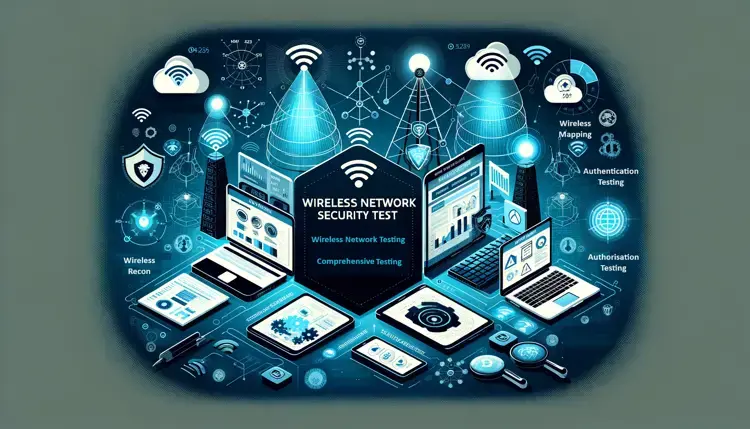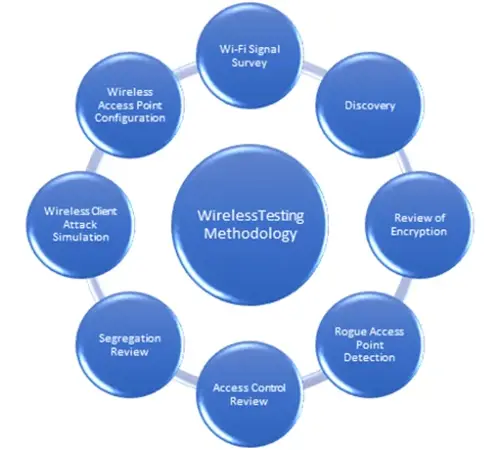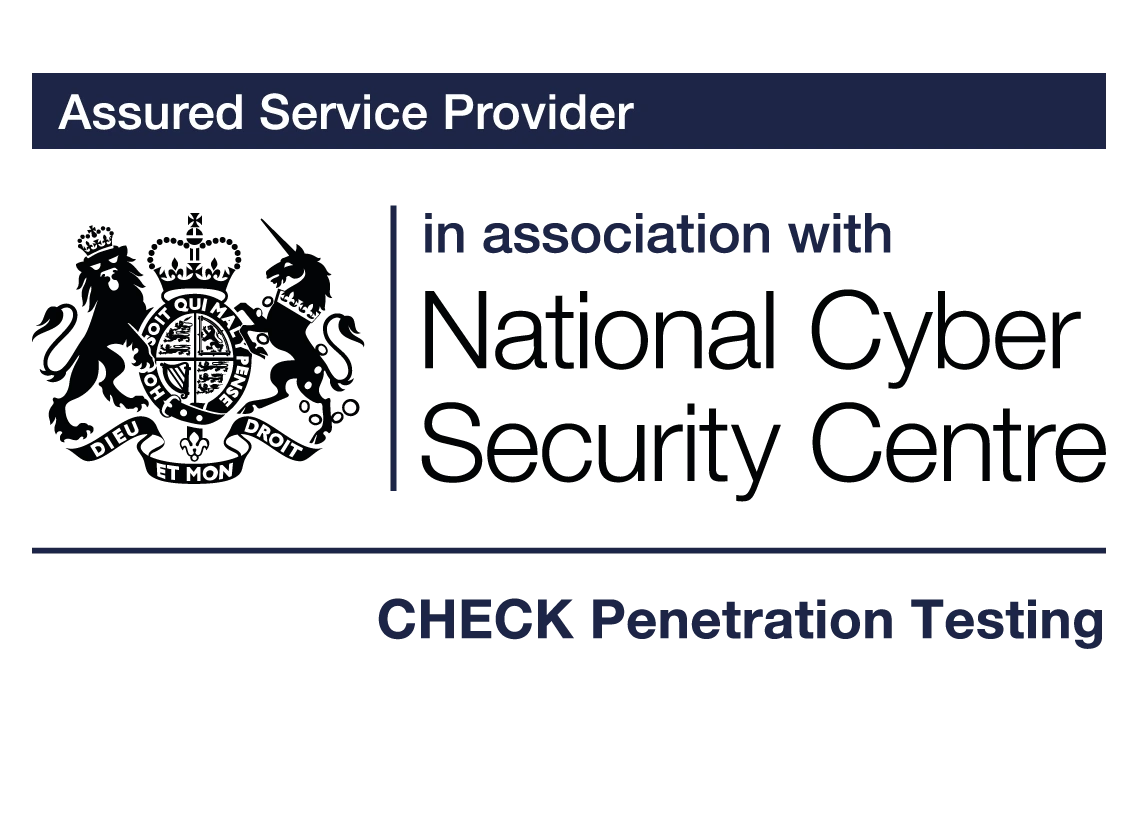Comprehensive Wireless Network Security Testing

In our modern digital landscape, the presence of mobile devices—from smartphones to tablets—is inescapable. Employees and partners alike anticipate seamless wireless connectivity. However, the widespread adoption of wireless networks can inadvertently introduce vulnerabilities, particularly when configurations are sub-optimal or rely on flawed protocols. Exacerbating this is the wireless signal's ability to stretch beyond the organization's physical confines, potentially presenting added risks.
To fortify the security stance of these pervasive networks, ProCheckUp offers specialised wireless testing. Through simulated attacks on your Wi-Fi—including Denial of Service (DoS), authentication checks, and assessments of wired and wireless network segregation—we ascertain potential vulnerabilities. Our mapping exercise also visually illustrates the reach of your wireless signals, both within and beyond your premises.
Common Questions
What is a wireless network penetration test?
- A wireless network penetration test, often referred to as a wireless pen test, is a comprehensive evaluation aimed at identifying and resolving security vulnerabilities within wireless networks. By simulating real-world attacks, security professionals attempt to exploit weaknesses in wireless protocols, configurations, and encryption technologies. This type of testing typically encompasses various attack vectors, including rogue device detection, the breaking of encryption or authentication processes, and testing how far beyond the physical boundaries the network extends..
Benefits of a wireless network penetration test?
The primary benefits of conducting a wireless network penetration test include:
- Enhanced Security Posture: Identifying and mitigating vulnerabilities helps prevent unauthorised access and data breaches.
- Regulatory Compliance: Many industries are subject to regulations that require periodic security assessments, including wireless testing.
- Extended Protection: Testing goes beyond the immediate wireless environment to evaluate how signals extend outside physical boundaries, potentially exposing the network to external threats.
- Awareness and Training: It helps in understanding potential security flaws and improving the security protocols practiced by the staff.
Is a wireless network penetration test right for you?
If your organization relies on wireless technology for daily operations, a wireless penetration test is likely crucial. This is especially relevant if:
- You store or transmit sensitive data over wireless networks.
- You have to comply with industry standards and regulations such as PCI DSS, HIPAA, or GDPR, which may mandate rigorous security measures.
- Your network has not been tested previously, or it has undergone significant changes in configuration or usage.
- You wish to maintain a strong security posture and safeguard your business reputation by proactively addressing vulnerabilities.
What tools are designed to test the security of wireless networks?
Several advanced tools and technologies are employed during wireless penetration tests to uncover and exploit vulnerabilities effectively. Some of these tools include:
- Aircrack-ng: A complete suite of tools to assess WiFi network security focusing on monitoring, attacking, testing, and cracking.
- Kismet: An open-source network detector, packet sniffer, and intrusion detection system for 802.11 wireless LAN's.
- Wireshark: A network protocol analyzer that lets you capture and interactively browse the traffic running on a computer network.
- AirPcapNX: A device that captures network packets on Wi-Fi networks, which can then be analyzed using software like Wireshark.
- Alfa USB WiFi card: A widely used wireless network adapter that allows for advanced packet injection and monitoring, crucial for penetration testing.
- WiFi Pineapple: A device used for more sophisticated attacks such as creating rogue access points to facilitate network monitoring and man-in-the-middle attacks.
- Garmin GPSMAP: While not directly a penetration testing tool, it can be used in conjunction with others to map out the physical layout of networks, particularly useful in signal mapping exercises to determine how far a wireless network extends outside the controlled boundaries.
Our Methodology at a Glance:

Post-assessment, ProCheckUp furnishes a comprehensive technical report. This includes detailed insights into identified vulnerabilities, remediation recommendations, and a synthesized executive summary. With the aid of CVSS scores and our proprietary risk ratings, we ensure clarity in understanding each vulnerability's potential implications. Recognizing the gravity of certain risks, we promptly alert our client's designated contacts about high or critical vulnerabilities.
Tools of the Trade: Our expertise is powered by advanced tools such as:
- AirPcapNX
- Alfa USB WiFi card
- WiFi Pineapple
- Garmin GPSMAP
- Aircrack-ng
- Kismet
- Wireshark
Some of ProCheckUp's Wi-Fi and wireless technologies testing equipment.

For More Information Please Contact Us

ACCREDITATIONS






